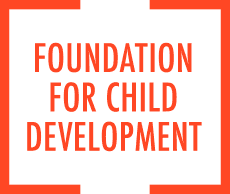https://www.fcd-us.org/research-practice-partnerships-to-strengthen-early-care-and-education/
Foundation for Child Development Grants in Action
The spring issue of the research journal, Future of Children, entitled “Research-Practice Partnerships to Strengthen Early Education,” details a promising approach to early care and education (ECE) research and practice and demonstrates its potential to improve educational outcomes of young children.
Research-practice partnerships (RPPs) involve long-term, mutually beneficial collaborations among researchers, policymakers, and practitioners. They are designed to inform systems-level decision-making and rely on a shared commitment among stakeholders. RPPs can be used to build and/or support high-quality ECE systems by examining the implementation and scale-up of high-quality ECE programs. In this issue, several articles discuss the potential of effective RPPs, challenges and opportunities for RPPs in the ECE field, and lessons learned for future collaborations.
The Foundation for Child Development’s President and CEO, Jacqueline Jones, authored an article in this issue, “Philanthropic Support for a Research-Practice Partnership.” It offers a timely perspective on the role and importance of philanthropy in supporting RPPs and facilitating meaningful partnerships that contribute to advancing early childhood research and education. The article also shares the Foundation’s journey in the development and launch of the New York City Early Childhood Research Network (Research Network) in 2015 as New York City implemented its Pre-K for All initiative. The Research Network aimed to examine various aspects of the ECE workforce supporting preschool children enrolled in public and community-based settings as full-day preschool was brought to scale.
In times of crisis, researchers and policy/practice leaders can benefit from real-time data made possible by RPPs to build stronger early childhood education systems and to be responsive to the needs of the ECE workforce. ECE professionals have navigated health and employment risks and personal challenges during the ongoing COVID-19 pandemic. As the early care and education field works to recover and rebuild, these partnerships offer opportunities to discover key innovations that will influence program and policy improvements and strategies to address longstanding issues in the ECE system that were exacerbated by the pandemic.
